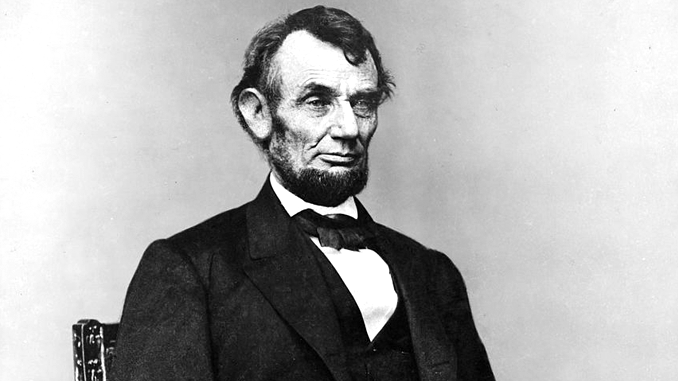
Thomas P. Lowry is a historian. His specialty is the American Civil War, and he has written many books on the subject. Some of the titles: Confederate Heroines: 120 Southern Women Convicted by Union Military Justice; Tarnished Scalpels: The Court-Martials of Fifty Union Surgeons; The Story the Soldiers Wouldn’t Tell: Sex in the Civil War; and Irish and German — Whiskey and Beer: Drinking Patterns in the Civil War. He’s written about three dozen books, most of them about the War Between the States and, most notably, most of them since 1998.
1998 was a banner year for Lowry. He was already established as a researcher and had published a number of books, primarily studious texts. He was a regular visitor to the national archives, where he would pore through various papers and find items that would validate theories or supplement existing knowledge. On one of these trips, he noticed something that had escaped prior notice: the date on a pardon issued by President Abraham Lincoln for a Union army deserter, one Patrick Murphy. Murphy had been tried for desertion and found guilty. He was due to be executed, but Lincoln had instead pardoned him – on April 14, 1865.
The date might mean little to an average person, but to an American historian, particularly one specializing in the Civil War, there are few dates of greater significance. On the evening of April 14, 1865, President Lincoln was shot by John Wilkes Booth while attending the theater. While the President was pronounced dead on the morning of April 15, April 14 was the last day where he performed Presidential duties. The timeline of the day is somewhat uncertain, but the Murphy pardon became a likely candidate for the final official act of President Lincoln.
The pardon was placed on special display at the archives and Lowry received a boost of fame – a limited boost, granted, as members of the public typically pay about as much attention to Civil War historians as they do chess masters or male beach volleyball players.
The special attention granted the document resulted in one of the archivists, Trevor Plante, using it in presentations. Initially, he had no problem with it… but the more he used the document, the more something just seemed off about the date. The ink seemed a touch darker on the “5”, and there was a hint of other markings around it.
A dozen years later, Plante had grown bothered enough by the disparity to do some independent research. Consulting a comprehensive catalogue at the archives, he discovered a prior researcher had transcribed the entirety of the pardon, but with a different date: April 14, 1864.
Plante brought the matter to his superior, who went with a federal agent to Lowry’s home. The pair engaged Lowry about his research, and then broached the subject of the pardon. Under pressure, Lowry admitted he’d snuck a pen into the archive and changed the date.
Lowry’s punishment was… almost nonexistent. While he had committed a crime which had significant fines and potential jail time attached, the date of its commission put it well beyond the appropriate statute of limitations. When questioned about it by federal officials, Lowry had admitted his wrongdoing. There was, simply, no crime on which he could be prosecuted. His only setback was a lifetime ban from the national archives.
He’d committed a major historical fraud, earned fame and wealth because of it, had his deception exposed, and suffered almost nothing in the way of ill effects. Even his book contracts continued to roll in, because he had an established sales record – the one item most publishers truly care about.
Question of the Night : Are there any memorable “facts” you learned as a youth which turned out to be untrue?
